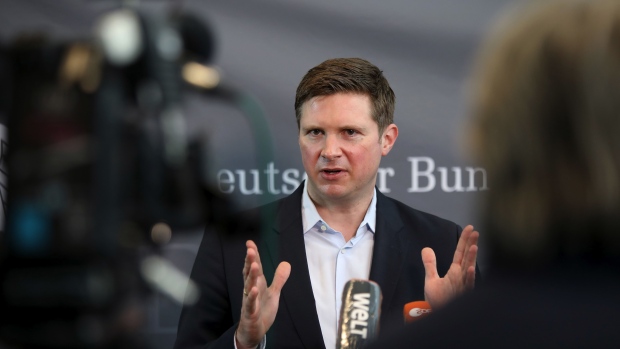Dec 9, 2021
German Deputy Finance Chief Warns of ‘Permanent Inflation Risks’
, Bloomberg News

(Bloomberg) -- A deputy German finance minister warned of “permanent inflation risks” over the longer term, a contrast with the European Central Bank’s position that such pressures probably won’t endure.
Florian Toncar, a deputy to new Finance Minister Christian Lindner, said inflation will likely moderate to 2% or 3% after the Covid-19 surge subsides, easing a once-in-a-generation cost-of-living squeeze in Europe’s largest economy. But supply shortfalls, rising wages and spending on Germany’s ambitious climate agenda will contribute to price pressures.
“Maybe not in the short term, but in the long run, permanent inflation risks we should anticipate,” Toncar told Bloomberg Television in Berlin on Thursday, his first full day on the job.
He and Lindner are both members of the pro-business Free Democrats. Toncar reiterated the party’s warnings about excessive inflation and also repeated a pledge that Chancellor Olaf Scholz’s government, which took office on Wednesday, will return to “strict budget rules” from 2023.
Lindner this week suggested that the euro area should be vigilant about preventing swelling government debt burdens from dictating the path of monetary policy. The German government will keep a close eye on rising prices and factor inflation into fiscal decisions, he said.
Toncar declined to comment on Scholz’s choice to succeed Jens Weidmann as Bundesbank president, saying only that he supports the German central bank’s tradition of promoting “stable finances.”
The ECB will discuss inflation, which is running at the fastest pace since the euro was established, at a Dec. 16 meeting, as well as its 1.85 trillion euro ($2 trillion) pandemic bond-buying program and other tools.
©2021 Bloomberg L.P.







